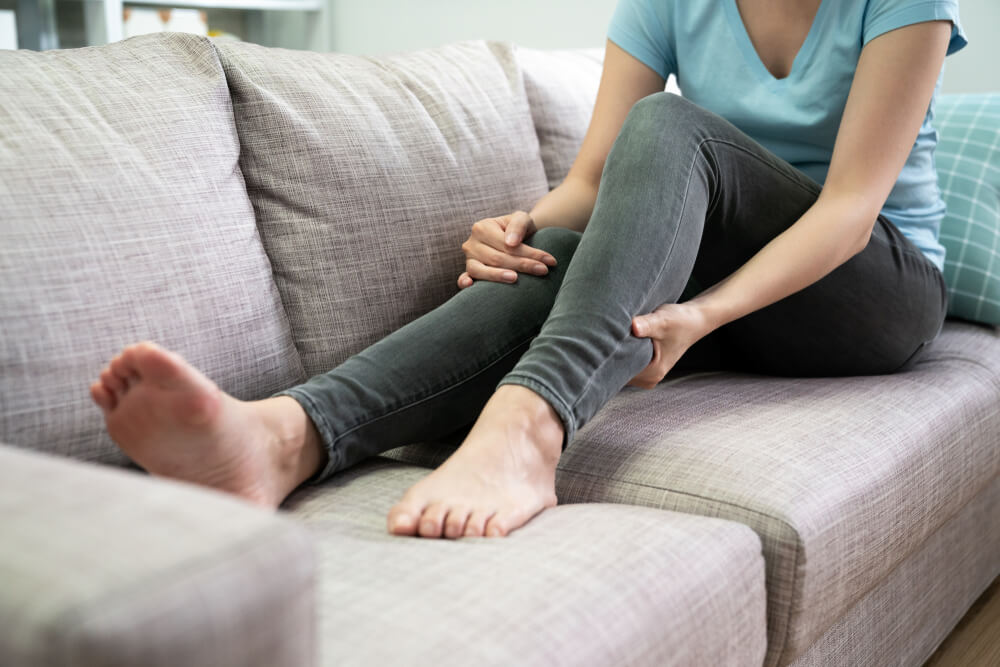Learn about the implications of diabetic leg pain from BetterHealthKare.com
Diabetes is a disease where blood sugar reaches very high levels. Over the long term, high blood sugar can cause multiple health problems, including diabetic nerve pain, leg pain, and neuropathy.
Understanding diabetes and how to manage the disease is vital for good health and important in preventing serious health consequences. To stay in the loop and on top of your disease, read our list of things to know about diabetic leg pain:
- Signs and Symptoms: Diabetes can cause nerve damage in your legs, feet, toes, hands, and arms, and this condition is called diabetic neuropathy. Some of the symptoms of diabetic neuropathy are a pain, tingling, numbness, cramps, and burning. There are treatments for alleviating leg pains and cramps, and these treatments can help to prevent further damage from occurring.
- Where it Can Develop: Neuropathy may first appear in the feet and legs, and develop in the arms and hands later on. There is a complex interaction between nerve fibers, blood vessels, nerve inflammation, high blood pressure and cholesterol levels that seem to be a contributing factor in causing diabetic neuropathy.
- What it Feels Like: Diabetic nerve pain can happen suddenly and feel like a sharp pain, shooting pain, cramping, or an electrical current. The sudden onset of diabetic nerve pain can cause you to drop items that you are holding in your hands.
- Balance Issues: Another common symptom of neuropathy is experiencing a loss of balance. This occurs because diabetic neuropathy can cause weakness in the ankles, and numbness in the feet. Orthopedic shoes can assist in helping you keep your balance. There may be times when you can’t feel your feet because they are numb, or they may tingle or burn.
- Effects it Can Have on Your Feet: Your feet may begin to change shape due to nerve damage that affects the muscles. Other problems that may occur include: your weight may begin to shift, causing you to walk abnormally, and your toes may become misshapen at the joints causing deformities like hammertoes.
- How it Affects Your Senses: Neuropathy can also affect your sense of experiencing hot and cold. Warm things may feel extremely hot to you, and cool things can feel frigid. You may experience hot or cold sensations in your hands and feet for no apparent reason.
- Medication Options: Diabetic leg pain can become debilitating and require medications to manage symptoms. It is important to always try to keep your blood sugar levels within the ideal range that is set by your doctor. Over the counter medications may be able to alleviate mild to moderate diabetic leg pain. There are also pharmaceutical grade medications that your doctor can prescribe, such as Cymbalta and Lyrica, to treat more severe diabetic leg pain. Other options you can consider are opioid medications and topical applications.
- Help Your Body with Nutrition: Diabetic nerve pain can be helped with good nutrition by assisting the body in repairing damaged nerve tissue and also acting as a barrier of protection to avoid further damage. Alpha-lipoic acid (ALA) is found in certain foods, and can also be taken as a supplement, can assist in alleviating diabetic leg pain and perhaps also prevent further nerve damage. Other nutrients known to assist in treating diabetic nerve pain and damage are Vitamin D, Vitamin B-12, Acetyl-L-carnitine.
- At Home Treatment Options: Other treatments for diabetic neuropathy include increasing blood flow by going for short walks or riding a stationary bike, and soaking your feet in a warm bath.
Click here to discover tips on proper foot care for diabetics.
You should be able to manage diabetic nerve pain with medications and other treatment options. Other things you should do are: try to control your blood sugar levels, check your legs and feet daily, and see your doctor on a regular basis.
Learn more tips on how to properly care for yourself at www.BetterHealthKare.com
